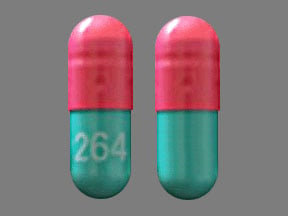
Prevacid 24hr Coupons & Savings Card – Discount Prices from $27.98
Brand for: Lansoprazole
My prescription
Edit
15MG, Lansoprazole (90 Capsule Delayed Releases)
Select pharmacy

CVS
$33.05
COUPON PRICE
Walmart
$27.98
COUPON PRICE
Albertsons
$29.68
COUPON PRICE
Walgreens
$32.40
COUPON PRICEPrevacid 24hr savings card
Show this card to your pharmacist
Walmart
$27.98
BIN
ID
PCN
GRP
019876
LH01C12A8A
CHIPPO
LHX
Powered by
More prescriptions for heartburn
More prescriptions for heartburn
Prevacid 24hr (Lansoprazole) dosage forms
Dosage Quantity Price from Per unit 15MG 90 Capsule Delayed Releases $27.98 $0.31 15MG 1 Capsule Delayed Release $2.71 $2.71 15MG 14 Capsule Delayed Releases $5.45 $0.39 15MG 15 Capsule Delayed Releases $5.66 $0.38 15MG 20 Capsule Delayed Releases $6.72 $0.34 15MG 28 Capsule Delayed Releases $8.41 $0.30 15MG 30 Capsule Delayed Releases $8.83 $0.29 15MG 42 Capsule Delayed Releases $11.36 $0.27 15MG 60 Capsule Delayed Releases $15.15 $0.25 15MG 100 Capsule Delayed Releases $30.09 $0.30
| Dosage | Quantity | Price from | Per unit |
|---|---|---|---|
| 15MG | 90 Capsule Delayed Releases | $27.98 | $0.31 |
| 15MG | 1 Capsule Delayed Release | $2.71 | $2.71 |
| 15MG | 14 Capsule Delayed Releases | $5.45 | $0.39 |
| 15MG | 15 Capsule Delayed Releases | $5.66 | $0.38 |
| 15MG | 20 Capsule Delayed Releases | $6.72 | $0.34 |
| 15MG | 28 Capsule Delayed Releases | $8.41 | $0.30 |
| 15MG | 30 Capsule Delayed Releases | $8.83 | $0.29 |
| 15MG | 42 Capsule Delayed Releases | $11.36 | $0.27 |
| 15MG | 60 Capsule Delayed Releases | $15.15 | $0.25 |
| 15MG | 100 Capsule Delayed Releases | $30.09 | $0.30 |
| 15MG | 120 Capsule Delayed Releases | $34.31 | $0.29 |
| 15MG | 1000 Capsule Delayed Releases | $101.30 | $0.10 |
What is Prevacid 24HR used for?
Prevacid 24HR is used to treat frequent heartburn that occurs two or more days a week. It works by reducing the amount of acid produced in the stomach.
What is the most common side effect of lansoprazole?
The most common side effect of lansoprazole is headache.
Are Prilosec and Prevacid the same thing?
Prilosec and Prevacid are not the same thing, but they are similar. Both are proton pump inhibitors (PPIs) used to reduce stomach acid and treat conditions like gastroesophageal reflux disease (GERD). However, they contain different active ingredients: Prilosec contains omeprazole, while Prevacid contains lansoprazole.
What foods should you avoid while taking lansoprazole?
While taking lansoprazole, it is advisable to avoid foods and beverages that can increase stomach acid production or irritate the stomach lining. These include:- Spicy foods- Acidic foods like citrus fruits and tomatoes- Caffeinated beverages such as coffee and tea- Carbonated drinks- AlcoholAdditionally, it is recommended to avoid eating large meals and to refrain from lying down immediately after eating to help reduce symptoms.
Can you take Prevacid long term?
Long-term use of Prevacid (lansoprazole) should be done under the guidance of a healthcare provider. While it is generally safe for many individuals, prolonged use may be associated with certain risks, such as vitamin B12 deficiency, bone fractures, and kidney issues. It is important for patients to have regular follow-ups with their healthcare provider to monitor for potential side effects and to determine the appropriate duration of treatment.
